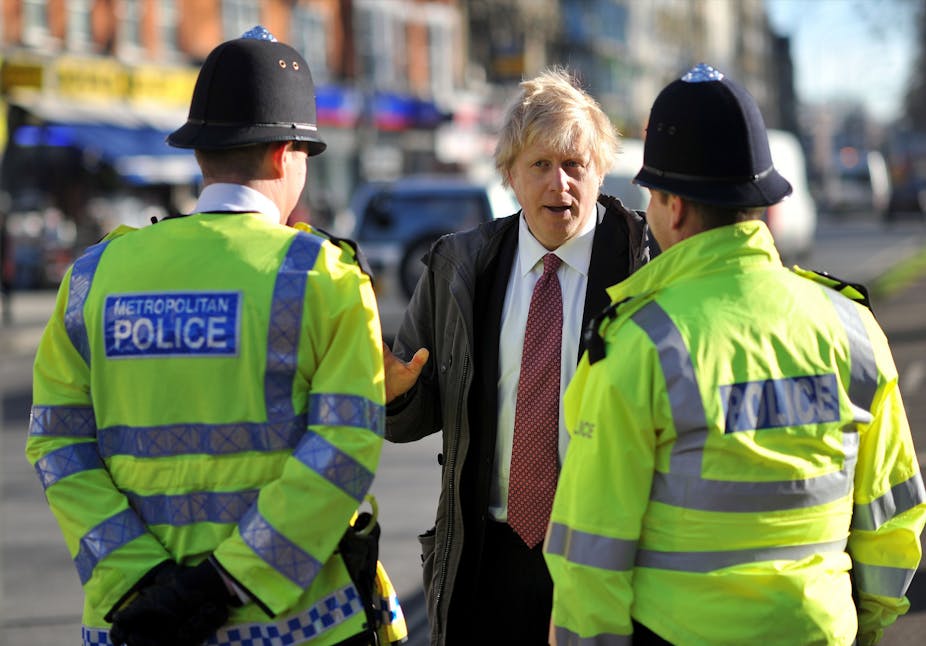Last week, London’s mayor Boris Johnson generated a largely negative reaction when he described European jihadis as “wankers” – people who feel they are failures and that the world is against them. Now, academics often presume London’s mayor is likely to be wrong about whatever he is talking about, above all in a period leading up to an election. In this case, however, it may not be that simple.
Most of those arguing against Johnson point to the presence of doctors, computer scientists and the university educated among Western jihadis. And this certainly was a significant profile in the decade following the September 11 2001 attacks. Typically this cohort set out to undertake elaborate actions that involved considerable planning, co-ordination and time. More often than not these involved the educated middle-class as leaders.
And in the Middle East there is no doubt that the educated middle-class makes up a significant part of the jihadi profile, in a region where they find themselves excluded by systems of corruption and patronage.
In that region, and in Africa, we also need to recognise the importance of criminal groups, clans and militias who have repurposed themselves as jihadi fighters.
Terror on screen
But when we look at western countries today, a significant number of researchers are arguing a shift is occurring. This is evident in killers such as Mohamed Merah in Toulouse in 2012, the Charlie Hebdo killers in Paris last month, the murderers of Lee Rigby in Woolwich in 2013, or the person behind the siege in Sydney’s Martin Place last December.
All these cases suggest the profile of people going on killing sprees in the West is changing. There is greater evidence of social marginalisation, evidence of disrupted family life and a significant relationship with low-level delinquent activity or crime. There is little or no relationship with mosques, Muslim communities or religious practice. Increasingly, today’s jihadis are not fundamentalists.

Researchers highlight the increasing importance of narcissism in this violence. The Woolwich killers sought to be filmed and interviewed while holding bloodied knives and cleavers; Mohamad Merah strapped a video camera to his chest before murdering Jewish school children and uploaded the images to al-Jazeera. The self-appointed cleric behind the Sydney siege last December, before executing a kneeling man, demanded a live radio conversation with the Australian prime minister, and throughout the siege forced hostages to contact media outlets on his behalf.
We need to recognise that there is a shift occurring here, a break from the elaborate plots that characterised jihadism in the decade following September 11.
‘Secret knowledge’
The narcissism increasingly evident in this violence evokes the killings undertaken by school shooters who periodically massacre their fellow students and teachers. Almost all these shooters post videos of themselves to YouTube, and they see themselves as anti-heroes who become individuals through their violence – and the visibility and recognition it accords them.
School shooters believe they are superior to others because they understand the way the world really works. They believe it’s their superior knowledge that separates them from others and explains their isolation.
Jihadis aren’t isolated in the same way, but they do believe they have access to superior knowledge that the government and religious leaders are hiding. They believe that there is a hidden reality that they have discovered, often framed in the breathless language of conspiracy theory, from the belief that the September 11 attacks were the work of the US government to the conspiracy theories circulating around the Charlie Hebdo killings, believed to be the work respectively of the United States or Israeli security services.

Today’s jihadi violence is changing, and so are its protagonists. Larger, elaborate network-based plots are giving way to killings undertaken by single individuals – or at most two or three people, often with significant dimensions of instability in their background. Jihadis appear to be becoming closer to other kinds of spree killers, whether that’s American school shooters or Norway’s Anders Behring Breivik.
Boris Johnson’s eye-catching description of the new jihadis is impossible to corroborate; it is possible that the London mayor has privileged access to security service information. But we do need to recognise the increasing diverse paths to jihadism. In the Middle East, the excluded middle-class mixes with the traditional members of militias, as criminal groups repackage themselves as jihadists. In the West, themes of humiliation and vengeance are becoming more and more central to jihadist killings, as we saw last month in Paris, combined with an increasingly sect-like desire to cleanse Islam of Shia, a central motivation of many jihadists in Syria and Iraq, convinced they are fighting heretical regimes.
Western jihadis are more likely to encounter jihadism in a prison than in a mosque. They may not be “wankers”, as such, but their desire to become “someone” through inflicting vengeance and humiliation on their victims increasingly evokes other, familiar types of violent actors in western society.

